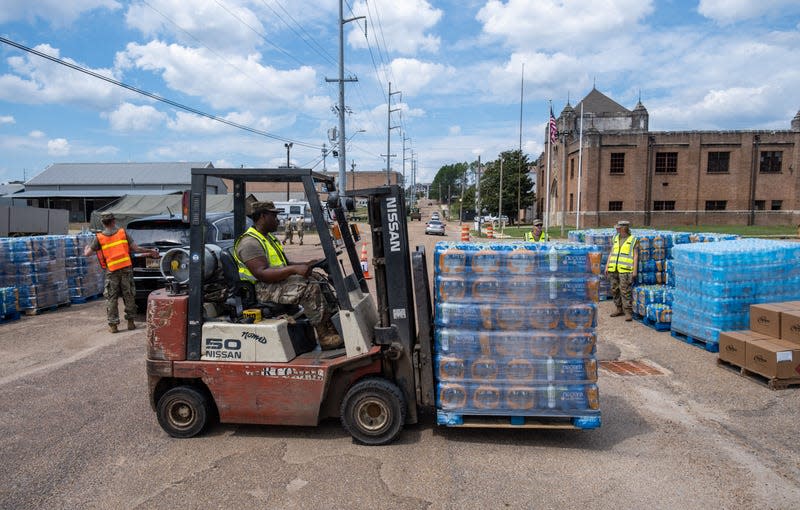NAACP Says Mississippi Officials Violated Jackson Residents' Civil Rights

The boil water advisory in Jackson, Mississippi may have been lifted earlier this month, but the NAACP is refusing to let Mississippi officials off the hook for their role in the city’s water crisis.
On Tuesday, the NAACP filed a federal complaint with the Environmental Protection Agency alleging that Mississippi’s mishandling of Jackson’s water crisis violated residents’ rights under the Civil Rights Act of 1964.
Read more
Aside from Halle Bailey, Here Are Other Black Disney Actors and Characters We Love
Move Over King Charles, Here Are More Black Men We Call Royalty [UPDATED]
“Everyone deserves safe, clean drinking water. In 2022, there is no excuse as to why our government cannot provide the necessary infrastructure to ensure that all of its residents have access to this basic human right,” said NAACP President & CEO, Derrick Johnson, in a statement. “The residents of Jackson, Mississippi, a predominantly Black community, have suffered at the hands of discriminatory state leadership for far too long.”
To bring everyone up-to-speed on the crisis, in August, heavy rainfall overwhelmed one of the city’s two water treatment plants, causing the entire water system to shut down. So for weeks residents were without running water to drink, bathe, wash their dishes, or brush their teeth.
It wasn’t until mid-September that the state officially ended the boil water advisory, signaling that the water should be clean enough to use again.
Unfortunately for the residents of Jackson, 82 percent of whom are Black, this isn’t the first incident leading to shutdowns or unsafe drinking water.
Last year a winter storm knocked out the city’s water supply, leading to a similar crisis.
More recently, Jackson residents filed a civil class action lawsuit alleging that for decades the water has not been “fit for human consumption” due to elevated levels of lead. And on Monday, the Department of Justice threatened to take action against the city of Jackson for violating the Safe Water Drinking Act due to the regular “harmful substances” found in its tap water, according to the AP.
Over the last two years roughly 300 boil water notices have been issued in Jackson, according to the complaint.
The NAACP says the blame for these crises lies squarely with Mississippi Governor Tate Reeves and the state of Mississippi’s racially discriminatory infrastructure funding practices.
They allege that Reeves’ “racist funding policies” stood in the way of necessary infrastructure repairs that could have prevented these repeated crises. Instead of giving funds to Jackson, the complaint alleges that the state prioritized “smaller majority-white communities with less acute needs.”
For his part, Republican Governor Reeves has blamed the crisis on city officials, saying that they already had enough funding to fix the water systems. However, Jackson Mayor Chokwe A. Lumumba says that the city has received nowhere near the amount of money Reeves claims, according to the local ABC News affiliate.
Regardless of who holds the greatest responsibility for this crisis, the NAACP complaint makes clear that what’s happened in Jackson is a part of a much bigger issue.
“The water crisis in Jackson is just the latest example of negligence – if not racist – pattern of underfunding basic water services for Black communities,” wrote Abre’ Conner, NAACP’s Director of Environmental and Climate Justice, in a statement. “Make no mistake – this is nothing new.”

